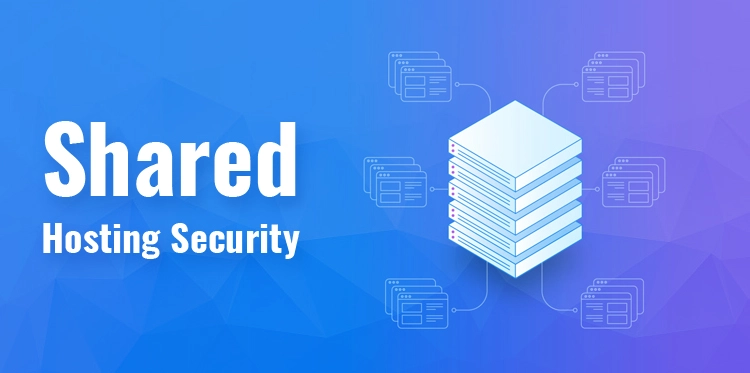When it comes to hosting your website, shared hosting is often the most affordable and convenient option. However, it comes with its own set of security risks that need to be addressed.
Shared hosting means multiple websites are hosted on the same server, which can lead to cross-site contamination and security breaches, such as unauthorized access to sensitive data or malware attacks. In order to understand better the shared hosting security risks, let us first start with what is shared hosting. It would be much easier for you to understand why you should keep away with shared hosting.
What is shared hosting?
Shared hosting is a type of web hosting where multiple websites are hosted on a single physical server and share its resources, such as CPU, memory, storage, and bandwidth. This is a cost-effective option for website owners who don’t require a dedicated server but still want to have an online presence.
In a shared hosting environment, each website is isolated from other websites on the same server. However, the resources are shared, which means that if one website experiences a sudden spike in traffic or uses too much of the server’s resources, it can affect the performance of the other websites on the same server.
Shared hosting is widely used by small businesses, startups, and individuals with low to medium traffic websites. It’s a convenient option for website owners who don’t have the technical expertise to manage a server on their own. The hosting provider takes care of server management, security, backups, and updates, allowing website owners to focus on their core business activities.
The following are the two primary categories of web hosting services:
- Linux Shared Hosting
- Windows Shared Hosting
A website owner has the option of selecting either option. To put it another way, shared web hosting is comparable to riding in an Uber with a group of strangers rather than calling your own.
Risks associated with shared hosting
Following are a few disadvantages of shared web hosting which may also pose as a threat to your website:
Shared hosting can be a great solution for those who are just starting out with their website or have a lower budget. However, it’s important to be aware of the risks associated with shared hosting.
- One of the biggest risks is that all the websites on the server share the same resources, including CPU, RAM, and disk space. This means that if one website on the server experiences a spike in traffic or uses too much resources, it could affect the performance of all the other websites on the server. This can lead to slow loading times and even downtime, which can be detrimental to your website and business.
- Another risk is that if one website on the server is compromised, it could potentially affect all the other websites on the server. Hackers can use vulnerabilities in one website to gain access to the server and then use that access to attack other websites on the server. This can lead to data breaches, loss of sensitive information, and damage to your website and reputation.
- Even if your hosting company may say that they have hosted websites for well-known firms, they won’t tell you with what other websites your website will be sharing resources, even if they have hosted websites for well-known companies in the past. There is a possibility that the other websites will pose a risk to your website, despite the fact that this is quite unlikely.
- A cracker might also acquire hosting from the hosting provider by giving legitimate information, become your neighbour, and then start visiting the server in order to interrupt the service provided by the server. Additionally, they might host harmful material on their own account and use it to attack other websites that are housed on the same server.
- Since websites tend to share their resources with one another, it’s possible that the performance of the website may suffer as a result. All of the websites that share an IP address will be affected by a denial-of-service attack in the case that it is launched against the hosting provider as a whole.
Shared Hosting Security Issues and Risks Prevention
Although inexpensive, shared hosting has several significant security issues, as was already highlighted. However, if the hosting company and the owner of the website collaborate and take the following preventative measures:
- Enable user input verification for text input and document uploads to make sure users aren’t using the upload area to submit harmful programs.
- In the case of Apache servers, a hacker would often use a Symlink method to avoid server authentication. Therefore, it is the hosting company’s responsibility to install security updates to the server.
- Hosting companies are required to verify the identification of new customers using several types of evidence.
- Install software that blocks malicious traffic, DDoS attack vectors, etc., such as Astra Website Security.
- Keep an eye out for uploads of harmful code on the websites.
- Look up reviews of hosting service companies. Make sure they adhere to respectable security procedures while hosting.
- One of the benefits of isolation techniques for shared hosting is increased security. With multiple websites hosted on a single server, there is a high risk of one website being compromised and affecting the others. Isolation techniques help to prevent this by creating a barrier between each website
Bottom Line
In conclusion, Shared Hosting Security is a cost-effective and popular option for many website owners. To guarantee that your website is fully safeguarded at all times, you will need a monitoring system that is both real-time and thorough.
However, it is important to understand the potential security risks associated with shared hosting and take measures to protect your website and data isolation techniques are essential for securing shared hosting environments. They provide higher security, improved dependability, and more control over the environment in which the hosting service is being provided.

